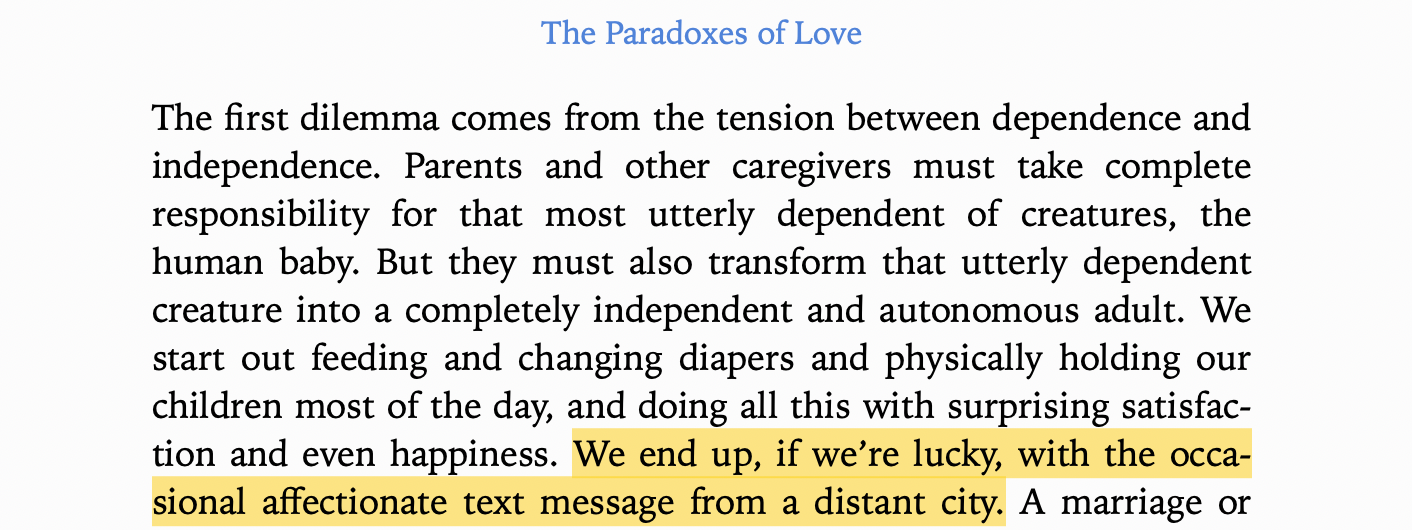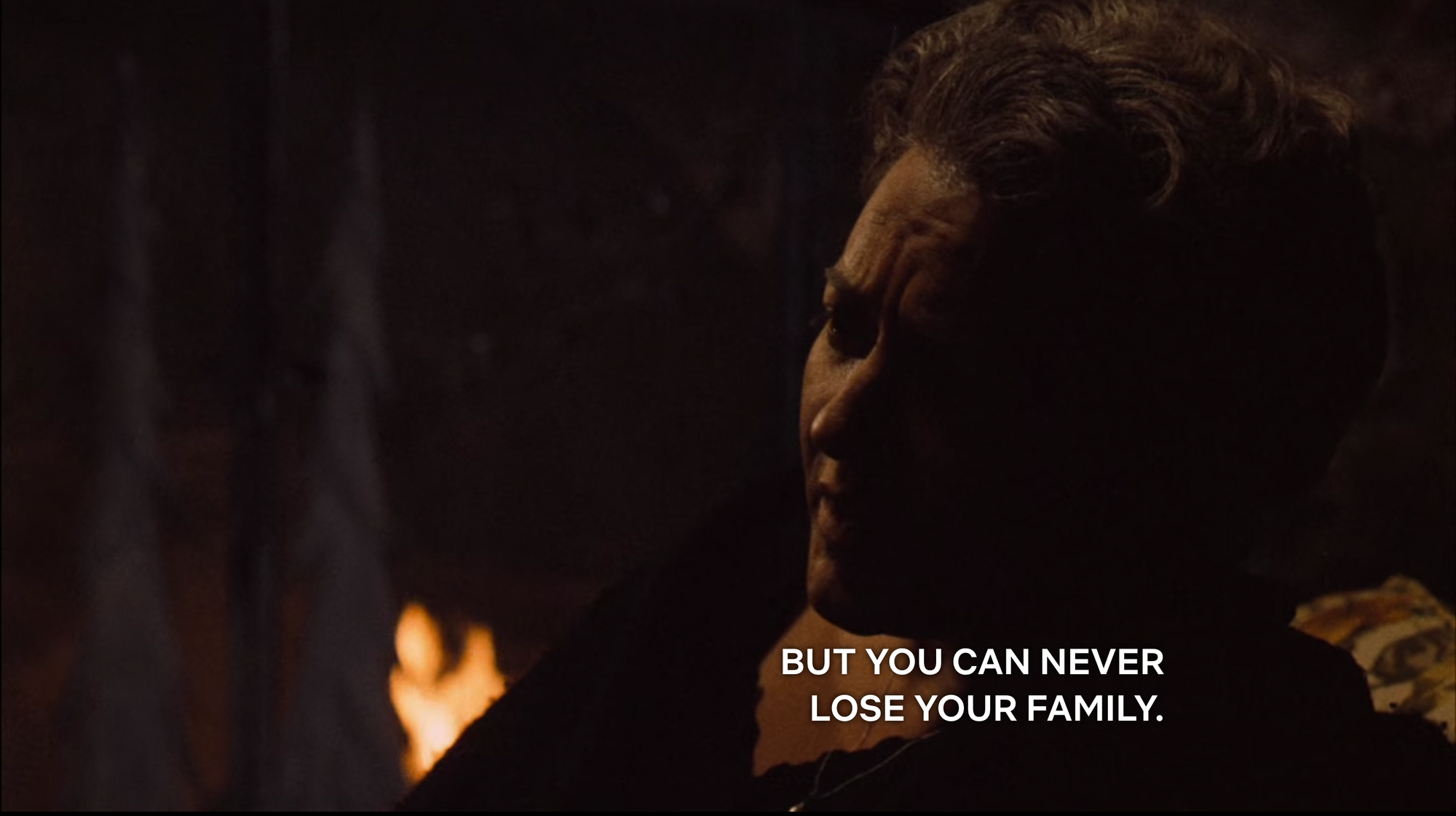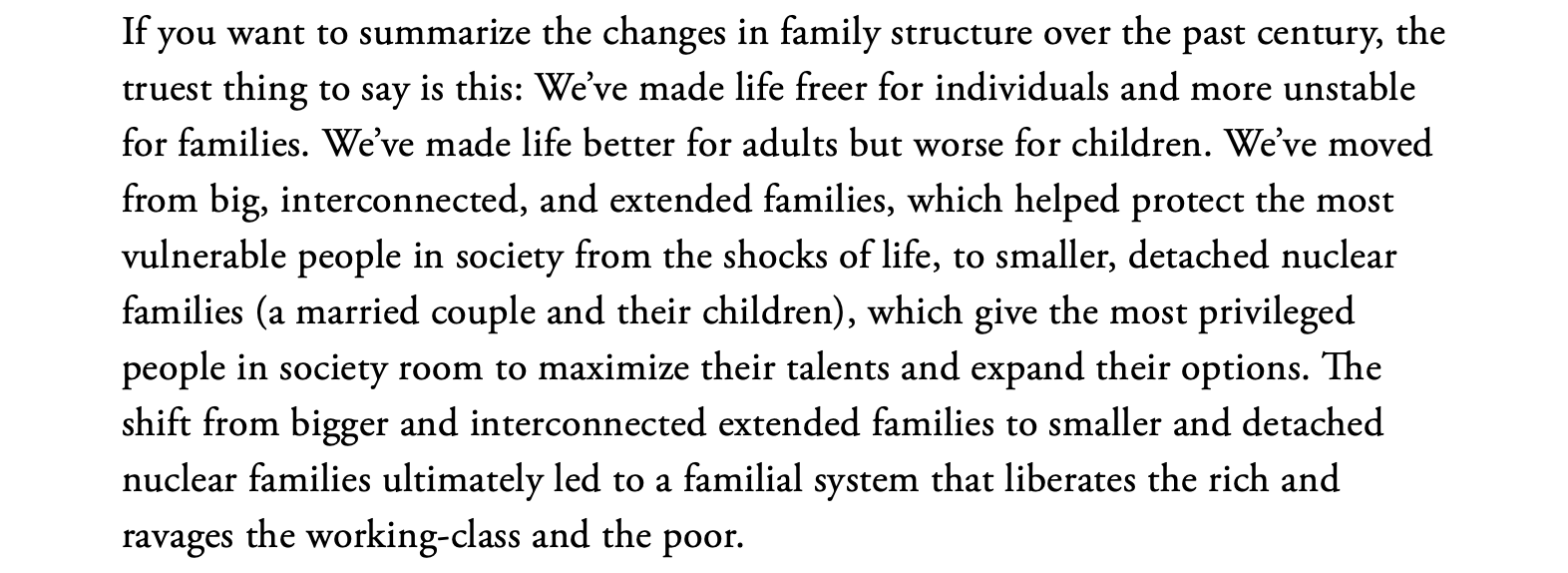Why I Don't Want To Raise Independent Children

Why is it a 'failure to launch' if your children live at home? I look at my children and think about this. I don't want them to go anywhere, and I'd like to remain close to them as adults. There's this idea that the point of parenting is for your children to leave, but why would you want this? Don't you like your children?
I grew up in America, on the launchpad. My parents liked me, but the assumption was always that I would grow up and leave. Then I moved back to Sri Lanka and discovered another culture. I guess you could say South Asian culture, but this was also western culture before the 1950s. The nuclear family is a recent anomaly, larger family groups is the norm.
Anyways, down here, young people usually live at home until they're married. They usually return home when they have kids. All of this would somehow be considered failure in the west, like you ran into hard times or something, but it's not like that at all. These are good times. You get to spend time with people you care about. Young adults get to support their parents, and parents get grandkids. You get free child-care, shared food, and love. We're not making rockets here, to be launched headlong into the capitalist wilderness. We're making families.
Quite frankly, it's a better way to be.
Modern Family
Cross-culturally, there are actually very different ideas on what the point of parenting is. For the western side I'll reference Alison Gopnik. She's an excellent writer on child development and I'm not dunking on her, this just goes to show how different our assumptions are:

What Gopnik describes here as a "lucky" outcome is the worst possible outcome for an South Asian parent. When she says "We end up, if we’re lucky, with the occasional affectionate text message from a distant city" that actually makes my South Asian parent head explode. Your child texts you? Occasionally? I know people that have better relationships with dead people.
When she says "they must also transform that utterly dependent creature into a completely independent and autonomous adult" most South Asian parents are like, we must do what now? I know 45 year olds in London where their mother still sends them food. A 'completely independent' adult simply isn't a concept here, and it's certainly not desirable.
My own mother occassionally fed me by hand until she said, and I quote, "your mouth got too scary." She has fed people in memory of her father almost every year for 53 years. My Seeya has been dead for half-a-century, but his children still have a meaningful, culturally-expressed relationship with him to this day.
What does independent mean in this context? Our culture is not built around atomized children going away. It's based around families staying together. This is a bond stronger than death. It's like in the Godfather where Michael Corleone asks his Italian mother about losing his family. She doesn't even understand the question.

"But you can never lose your family," she said.
But Michael is American, and he does. Of course, I can understand divorcing Michael Corleone, and the innovation of leaving shitty families is an excellent one. But the idea that everyone leaves their family by default is madness. They live in a distant city and maybe text you? After cleaning their butts for years? What's the point?
It's like we're launching new products into capitalism—new consumers, new users—by destroying the ancient bonds between human beings. This is what the nuclear family is. It gets its energy by splitting atoms, by splitting the old, multi-generational family apart. David Brooks goes into the American side of this in an Atlantic essay (which I invite you to read critically):

As Brooks talks about, you are free to create any family you want in America... if you pay for it. Hence rich families use money to buy what community used to provide—childcare, learning opportunities, emergency support, even therapy. Meanwhile working (white) families are far from the 1950s, where one salary made sense. They're working all the time, barely have time with each other, and barely get by. People die alone in nursing homes, they give birth alone, they raise children alone. It's a terribly lonely life. Young adults just get launched into this existence with a degree as a parachute, if they're lucky. It sucks. You barely have a family life and at 18 you get kicked out to cobble together one from scratch.
Just Family
This is not how most humans live, or ever lived. I'll talk about my experience in South Asia, but this is really just the default for humanity, and the way it was in America before the 1950s. Luckily most of the world didn't get the memo, and the majority of humanity still lives like this. Together, in large family groups.
I moved back to Sri Lanka after university, when I was 21. I moved back in with my parents. I stayed there, on and off, until I got married. When my daughter was born we moved back in, with my in-laws. This is a fairly normal pattern here.
Now we live in our own house, but on the same street with my wife's parents, grandparents and uncles, aunts and cousins. Our household is effectively this big. They're a bit unusual in that they're rich enough to own this much land, but most people I know live in some sort of multi-generational arrangement. My Achchi, Nanda, cousin, and kids all live under one roof—four generations, ranging from 6 to 96. And again, this is normal. The economy is actually structured around family units, not individuals. Few starting salaries in Sri Lanka cover rent as it's assumed that no one lives (or eats) alone.
This has significant drawbacks, like the fact that you can end up financially trapped in families. If your family is poor it sucks, but if they're rich and abusive it can be worse. Family-oriented cultures can be positively hostile to marginalized people—gay children, trans children, single-mothers, children that want to marry the wrong people, children that don't want to marry at all. The feudal nature of things also means that poorer people end up subsumed into richer families as servants. People say their servants are 'like family' but—when it comes down to it—they most definitely are not. And of course any family can be ruined by just one toxic person or abuser.
Big families are only as good as the people in them. All I am saying is that they are less prone to structural failure than the nuclear family. At the very least, risk is distributed more. In a nuclear family if you lose one parent you're 50% down. If you lose two parents it's done. With our extended family, 35 people would have to die before my children were left alone. They have at least a dozen households they could stay and eat in. We don't have life insurance, but we have lives.
Again, I'm not saying that big families = happy families. They can make you miserable as well. All I'm saying is that humans are happiest with meaningful relationships, and umbilical cords are a reliable way to organize that. We shouldn't be launching away from them unless it's an emergency exit.
My Children
I can see both sides of this cultural divide because I have lived on both sides. I grew up in America, but then I moved back to Sri Lanka—where children never grow up.
I spent years thinking independence was the point of being an adult until my wife and children taught me better. First we had a health scare, which made all imaginary lines fall away. We just needed support, we couldn't be independent. Then we had children, and then you absolutely need help if you want to sleep or stay sane. So that last boundary fell away as well. Suddenly I was thrilled to live at my in-laws place, because baby-sitting.
Now when I look at my children, I want the same for them. Not the independence I grew up with but the closeness I grew into. I want them to always be close to us, even as adults. Even after we're gone. Now I don't even understand what independence means. It's an illusion. Humans depend on each other every day.
The point is not to launch into some abstract independence, but to depend on the right people, in the right, healthy, ways. It could be your born family, your made family, but it should be someone, and it needs to be more than one to be safe. They say 'born alone, die alone' but that never made sense to me. You're literally born attached to another human and, inshallah, you die surrounded by them. So I've gotten off the rocket ship, and stand here surrounded by family, my feet firmly on the ground. To roam is human, but dependence is divine.
*I have tried to use inclusive language, but if you were an orphan or from an abusive or awful family, this talk may still hurt. I'm sorry. Some people just don't have or want that family connection, or they find it somewhere else and that's fine. You're fine. I'm talking about cultures in general, but we're a diverse human family and there's room for all of us.